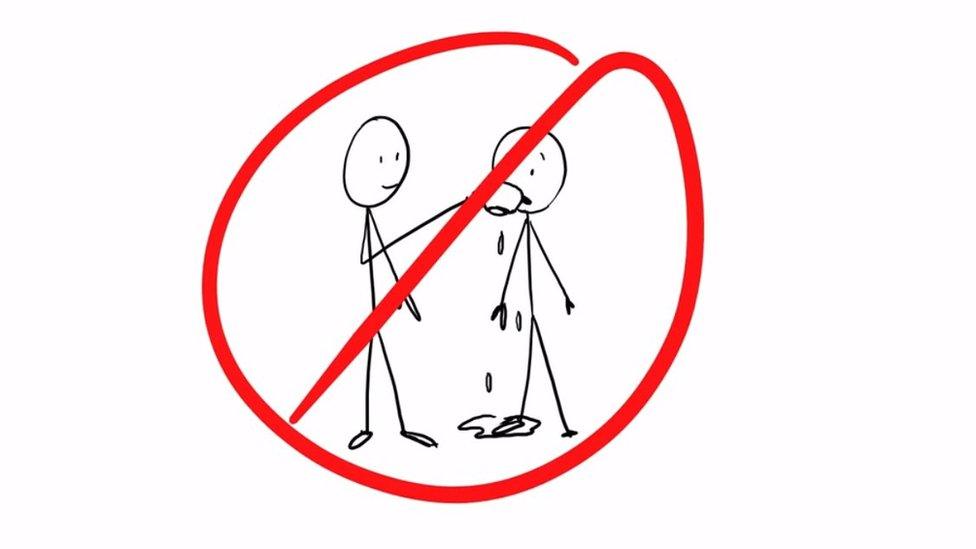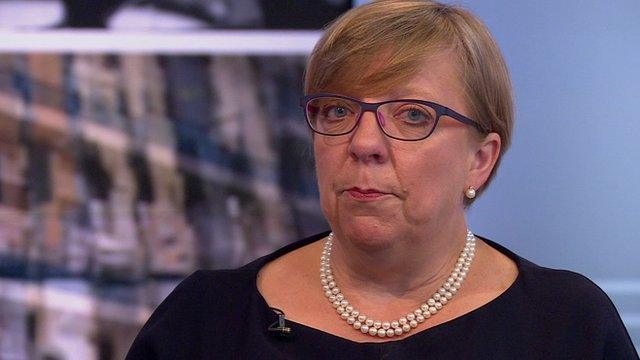Tea is analogy for sex in police consent YouTube video
- Published

Viewers are shown how "ludicrous" it would be to force someone to drink a cup of tea against their will
Wanting a cup of tea has been used as an analogy for sexual consent in a YouTube video released as part of a police awareness campaign.
Thames Valley Police's "consent is everything" campaign aims to educate people about the need to get consent, rather than assume it has been given.
It shows how "ludicrous" it would be to force someone to drink tea if they had turned it down or changed their mind.
And it tells the viewer not to pour tea down the throat of someone unconscious.
Thames Valley Police said awareness of what sexual consent meant was "vital".
"The law is very clear. Sex without consent is rape," said Det Ch Insp Justin Fletcher.
'Grey area'
The video was originally created by Blue Seat Studios and blogger rockstardinosaurpirateprincess, who wrote the text on which the script is based earlier this year.
Towards the end of the near-three minute video, viewers are asked: "If you can understand how completely ludicrous it is to force people to have tea when they don't want tea, and you are able to understand when people don't want tea, then how hard is it to understand when it comes to sex?"
Tea and Consent
Other lines in the video include: "If they say 'no thank you', then don't make them tea at all. Just don't make them tea. Don't make them drink tea, don't get annoyed at them for not wanting tea. They just don't want tea, OK?"
And the voiceover warns: "If they are unconscious, don't make them tea. Unconscious people don't want tea and they can't answer the question 'do you want tea?' because they are unconscious."
The campaign has been launched by police alongside the Thames Valley Sexual Violence Prevention Group.
Christina Diamandopoulos, co-director of Rape Crisis in Wycombe, Chiltern and South Buckinghamshire, said: "For too long there have been myths around the subject of consent, particularly that it is a 'grey' area.
"In reality it has never been a 'grey' area, and this campaign, which we are proud to be part of, makes that clear."
- Published22 September 2015
